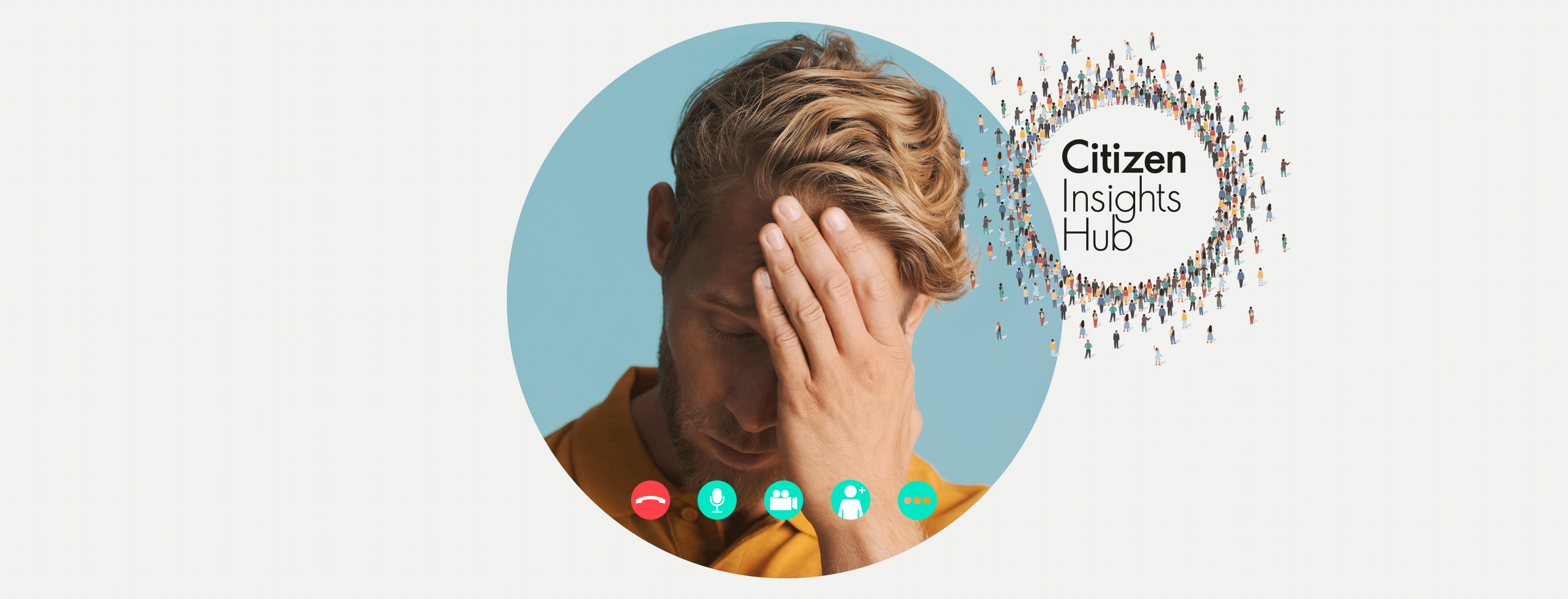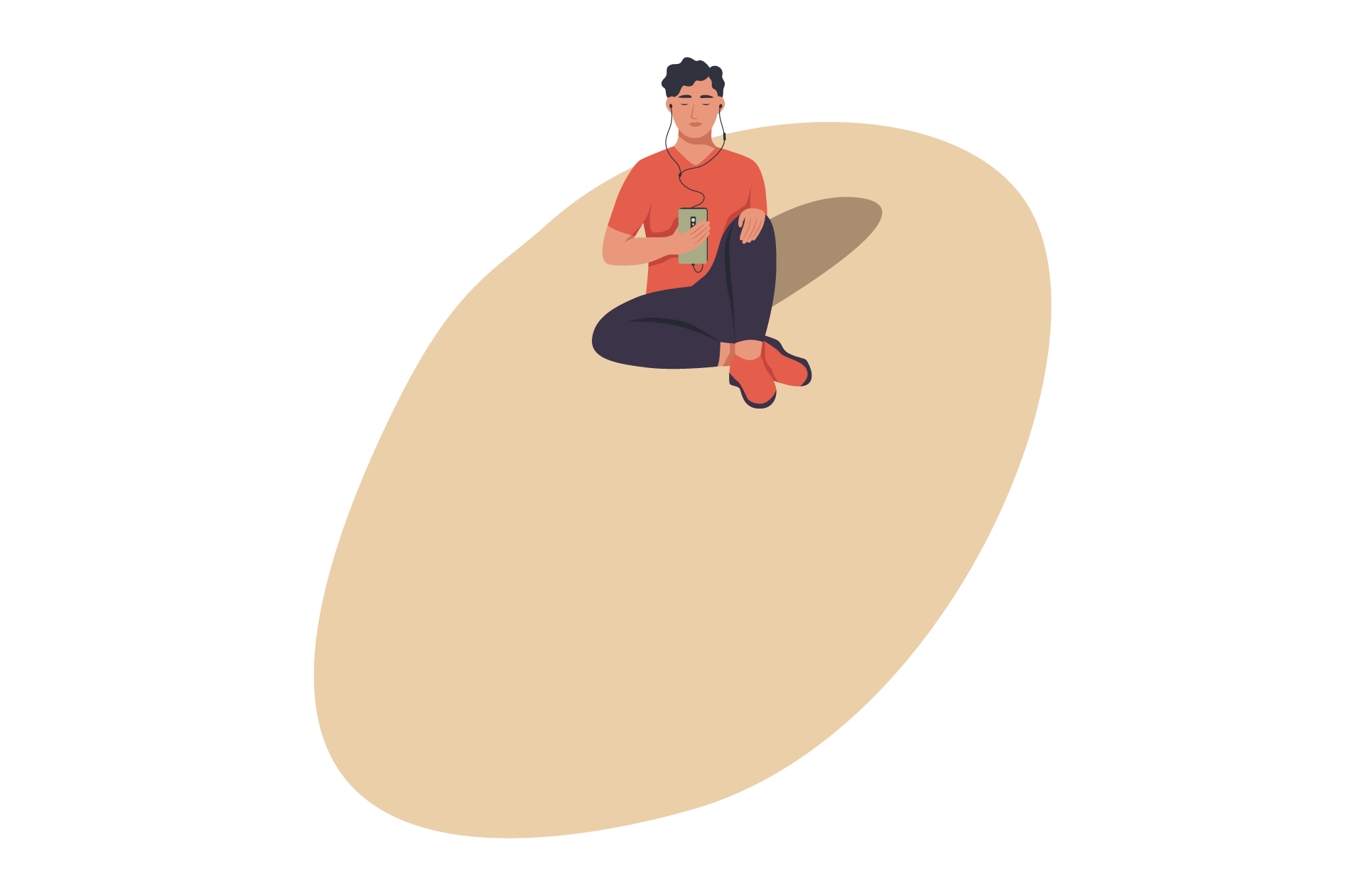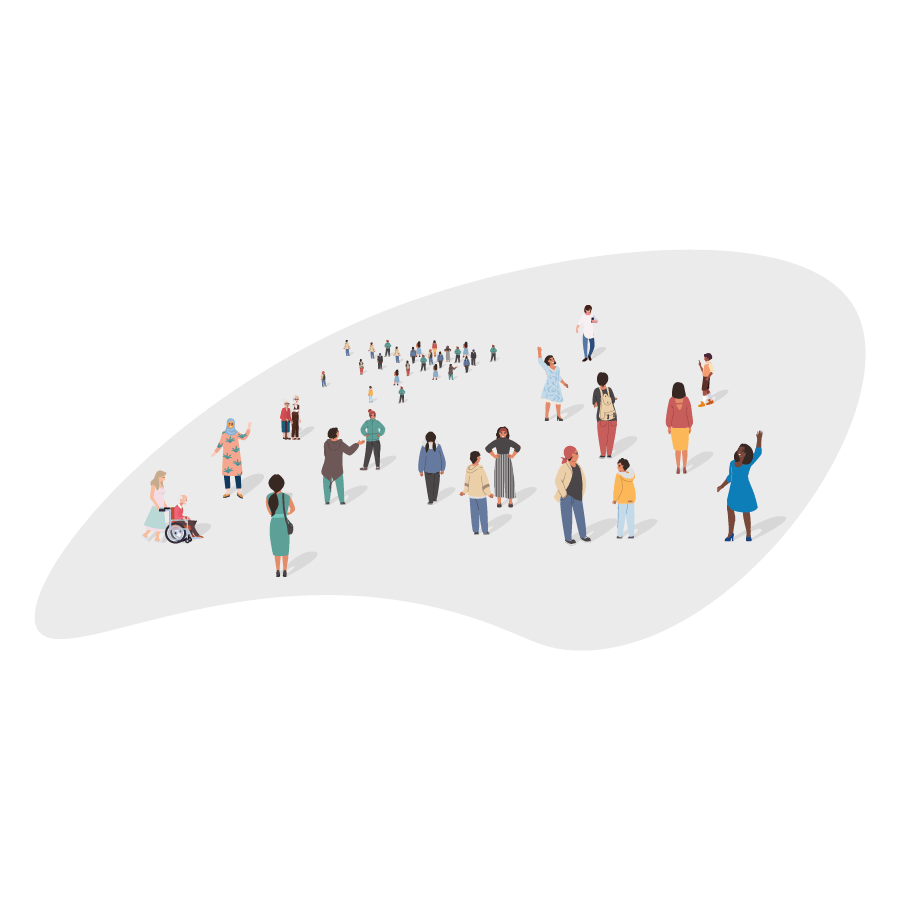Over half of Australians have sought treatment for a mental illness, with certain demographics more affected than others. According to the Publicis Sapient Digital Government Research, which surveyed a demographically accurate range of the population, including age groups and income status, many of these people said they would be more likely to seek help if it was available online.
What issue can we solve for you?
Type in your prompt above or try one of these suggestions
Suggested Prompt



Public Sector
Supporting Mental Health with Digital Government Services
Supporting Mental Health with Digital Government Services

Mental health issues on the rise

Even before the pandemic, mental health issues were rising. But the added stresses of job loss, remote working and schooling reduced social interaction and lockdowns, have resulted in heightened psychological distress.
The most cited conditions in our survey were depression (30 percent have sought treatment), anxiety disorders (27 percent), stress-related issues (21 percent) and sleep-related disorders (19 percent). PTSD, eating disorders, obsessive compulsive disorders and substance abuse were also widely reported.
The people most likely to have sought treatment are those with precarious finances (79 percent compared to 64 percent basic, 48 percent stable or 43 percent comfortable) and those who experienced a major life event (e.g., new job, new house, marriage, divorce or death of a loved one) in the last 12 months (68 percent compared 41 percent). Younger generations are also more likely to have reported reaching out than older groups (Gen Z 66 percent, and Millennials 64 percent compared to Gen X 54 percent vs Boomers at 37 percent). This may not mean that older generations are less affected, but rather they are less willing to seek support.

Demand for digital support for mental health

Providing digital services can make mental health treatment more accessible to Australians – and help save lives. It will also encourage those who are currently hesitant to seek support: 72 percent of people with a mental health condition said that an online consultation for this condition would make them more likely to reach out for help.
This perspective is notably higher among younger populations. When asked: "would knowing that the consultation would be an online experience make you more likely to reach out for help with a mental health issue?", 72 percent of Gen Z, 80 percent of Millennials and 59 percent of Gen X said that it would.
Overall, 70 percent of Australians say they’re comfortable with online text or video-based assistance for mental health counselling. Comfort with digital support is higher (75 percent) among those with a mental health condition compared to those who don’t (63 percent).
-
72 percent of people with a mental health condition said that an online consultation for this condition would make them more likely to reach out for help.

New insights will be released throughout the year, with a fresh survey conducted on an annual basis.
Need for co-design and cooperation
Addressing mental health issues is going to need a lot of different interventions and digital will have a role to play. It will be critical to co-design different digital government services with different groups, including varying demographics and types of mental health issues, to ensure digital services are appropriately targeted and driving value.
Support services may take a range of forms, from one-on-one telehealth consultations to online support groups. Some services may be fully automated self-help programmes, while others involve more professional guidance.
Co-design is vital for understanding why people aren’t currently using services and encouraging them to access them. For example, digital mental health services may be particularly critical in rural and regional communities where face-to-face support is less available. But other groups may have issues around the stigma of reaching out, or privacy concerns. People from culturally and linguistically diverse backgrounds may face a lack of cultural understanding and/or language barriers.
Research by mental health support service Beyond Blue estimates that 45 percent of people will experience a mental health condition in their lifetime, but based on our research, this figure is likely even higher. This represents a huge human, social and economic cost.
Digital government services can play a key role in supporting Australians with mental health treatment. With Australians more willing to embrace digital services than ever, there is an important opportunity for the government to further expand services and bring huge benefits to citizens.





